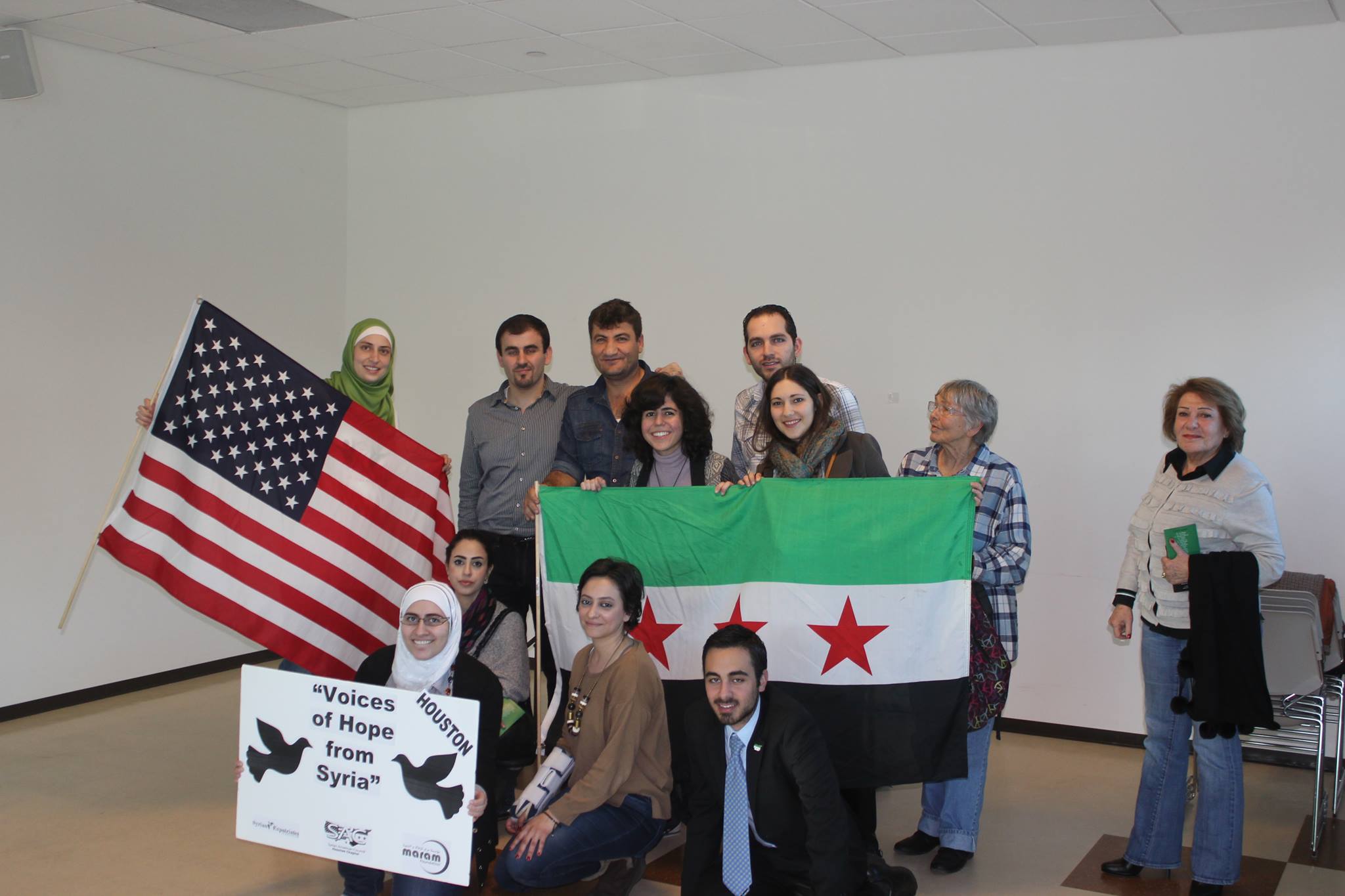Shiyam Galyon was previously the media relations board member of SAC Houston before being elected its president. She has organized public speaking events for Syrian Revolutionaries in Texas and engages local TV, radio, and print on issues pertaining to Syria. The Syria Campaign's powerful creative campaigning is what she hopes to use as supplemental tools in breaking through the apathy around Syria's war as a "new normal".
I never took a political science class and I don’t enjoy politics at all. Politicians are not leaders: they are players within a system that too often is responsible for massive human suffering. But paying attention to politics is important because by understanding the system, people working together can effect change. If politicians are players, then community organizers are their counterparts – true leaders.
One such community organizer is Raed Fares, an internationally recognized revolutionary from a small town called Kafranbel in Northern Syria. The Syrian American Council chapter in Houston was able to bring Raed to speak at Houston Public Library, and his message transcended borders. “We need to build functional citizens. It’s true we are fighting Bashar al Assad – but each one of us has a little Bashar al Assad inside that keeps us oppressed. We need to value active engagement with our political systems. In our case, we are rebuilding our community infrastructure and also learning to undo internal oppressions.”

SAC Houston with Raed and Razan when they stopped by to speak at Kendall Library in Houston on the “Voices of Hope” tour
One of the most powerful things a citizen can do is to organize a public event for education, debate, or conversation. Invite the local media, and all of a sudden your representatives see that their constituents are paying attention to something. I work with a group called the Syrian American Council, and the Houston chapter hosted film screenings and called press conferences. Our film screening of Return to Homs brought in 200 people of different backgrounds, and our radio interview on a local station helped Houstonians contextualize Syria. An educated population is an empowered population. This makes it easier for Syria advocates on the Hill to convince representatives to vote in favor of the Syrian people.
Recently, Dr. Maria Curtis and Jeff Bowen, a couple of very sincere allies at the University of Houston Clear Lake, organized a community panel on Syria. I went along with others who were active in humanitarian relief, and together we answered tough but important questions on Syria. At the end, one audience member told me as another nodded along, “This is the first time I’ve been able to put Syria into context. I’ve just had no idea what to believe.”
Clearly, there is a lot of work to do. The enormity of it all can feel hopeless, until I remember from science: our very own DNA is held together by trillions of hydrogen bonds, which on their own are very weak but together can make something significant.
There’s also the fact that Syrian revolutionaries who risk their lives to come to America do not work on food baskets to send back to Syria. They go on speaking tours and work as advocates for a Free Syria. If advocacy in America is important to them, then it is important to me.
In Arabic, the word for “vote” and “voice” come from the same root, which is probably why dictators restrict freedom of speech. When looking across the Atlantic to figure out how to help Syria, remember to look back at your own community and see what project you can organize. The biggest mistake you can make is to undervalue your own voice.
The Syrian-American Council is devoted to supporting Syrians seeking to build a free, democratic, and pluralistic Syria. Find out more about chapters in your area here.